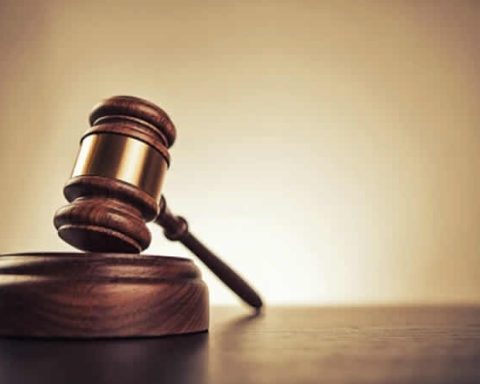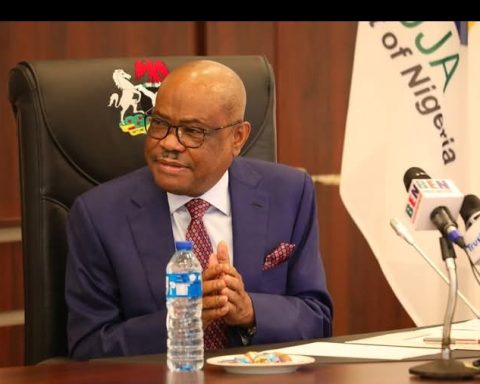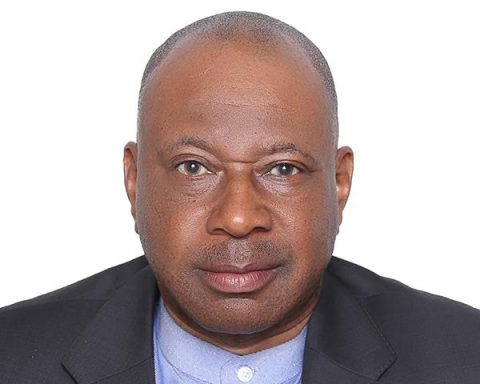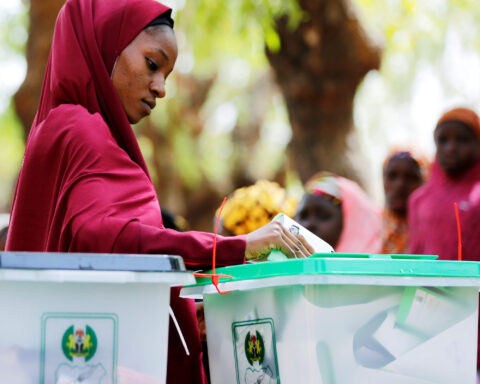The Federal Capital Territory Administration’s (FCTA) recent decision to revoke nearly 4,800 land titles in Abuja over decades of unpaid ground rent has sent a message across Nigeria’s political and administrative landscape. While the move signals a long-overdue push for fiscal accountability, the conspicuous absence of the ruling All Progressives Congress (APC) from the list of defaulters has raised questions about the true motivations behind the enforcement. As government agencies and opposition bodies alike face the consequences, the nation watches closely to see whether this is a genuine crackdown on delinquency or a politically selective exercise cloaked in legality.
The FCT Minister, Nyesom Wike, approved the revocation of 4,794 land titles in Abuja due to non-payment of ground rent for periods ranging from 10 to over 40 years. These properties are located in key districts including Central Area, Garki I and II, Wuse I and II, Asokoro, Maitama, and Guzape. The total ground rent owed by 8,375 property owners amounts to approximately ₦6.97 billion.
Join our WhatsApp ChannelFollowing the revocation, ownership of these properties has reverted to the FCTA, which began taking possession of the affected properties starting May 26, 2025. Although a 21-day grace period was given to defaulters with debts between one and ten years, before revocation actions were enforced. The move is based on extant legislation requiring annual ground rent payment as stipulated in the terms of the Right of Occupancy grants, in line with Section 28, Subsections 5(a) and (b) of the Land Use Act, which empowers the government to revoke titles due to non-compliance with the conditions of occupancy, including default in payment of ground rent.
ALSO READ: FCT Minister Revokes PDP National Secretariat Land Allocation
Almost every major public body and institution has been affected by the revocation of land titles over unpaid ground rent, except the APC. Among those impacted are the Central Bank of Nigeria (CBN), Independent National Electoral Commission (INEC), Peoples Democratic Party (PDP), Nigerian National Petroleum Corporation (NNPC), Niger Delta Development Commission (NDDC), National Universities Commission (NUC), Nigerian Port Authority (NPA), Nigerian Television Authority (NTA), News Agency of Nigeria (NAN), Federal Ministry of Environment, Nigerian Security Printing and Minting Company, University of Calabar, Nigerian Postal Service, Power Holding Company of Nigeria (PHCN), and several state governments including Borno and Kaduna. The APC is notably absent from the list of affected entities.
Is there evidence that APC is paying up? The All Progressives Congress (APC) is located at No. 40 Blantyre Street, Wuse II, Abuja. This area, Wuse II, is a central district in Abuja where many government institutions and properties are situated.
According to the list of properties with revoked land titles due to unpaid ground rent, some affected properties are also in Wuse II, but there is no specific mention that the APC’s property or immediate vicinity at Blantyre Street is among those revoked or sealed. Because of the absence of APC on the list, it now seems the action is targeted at anyone or anybody.
A key factor fuelling speculation around the revocation exercise is the lack of transparency on the part of the FCT. Can we say the FCT Minister himself is contributing to the public doubt? If a comprehensive list of property owners who have fulfilled their ground rent obligations had also been published alongside the defaulters’ list, much of the controversy could have been avoided. The selective disclosure has created room for suspicion, especially regarding the conspicuous absence of the ruling party among the defaulters. Releasing the list of compliant institutions would not only clarify whether the ruling party has indeed paid up, but would also serve as a motivation for other property owners to settle their debts. By doing so, the FCT Minister would strengthen public trust and further his stated goal of ensuring accountability and compliance with statutory obligations.
The FCTA emphasised that the enforcement will proceed “without consideration of past ownership” and is aimed at ensuring compliance with statutory land use and fiscal obligations, boosting internally generated revenue, and deterring property speculation. Legal challenges by some defaulters have not stopped the process, as no court injunction currently restrains the FCTA’s actions.
For instance, an Abuja-based firm, Green Lake International Limited, filed a ₦1 billion lawsuit against the FCT Minister and the Federal Capital Development Authority (FCDA). The firm alleges unlawful revocation of its property located at Plot 2786, Cadastral Zone A06, Maitama District, Abuja. The suit, marked FCT/HC/ABJ/CV/416/2024, seeks compensation for alleged trespass and wrongful revocation of the property.
Also, in March 2024, Praco International Ltd obtained an interim injunction from the High Court of the Federal Capital Territory, restraining the FCTA from demolishing its property located in the Asokoro/Kugbo axis.
Government, Including Anti-Graft Agencies, are the Worst culprit
It is a shameful thing. Several government agencies, including anti-graft bodies, are among the worst culprits in the non-payment of ground rent on properties in Abuja. Notably, the EFCC, an anti-corruption agency, is listed among the defaulters with revoked land titles due to unpaid rent.
This highlights a troubling irony where agencies tasked with fighting corruption themselves owe substantial arrears. Other government bodies owing ground rent include the CBN, Nigerian National Petroleum Company Limited (NNPCL), Nigerian Television Authority (NTA), National Orientation Agency (NOA), and various ministries and commissions.
Another perplexing question is why the revocation took so long, and why did the bodies refuse to pay up since the March warning? The truth is, if government agencies were not involved, would such extended grace periods and delays in enforcement have been granted? Did they read political undertones, and what would happen to their operations if Wike walks his talk?
Of course, many observers and affected parties should have read political undertones into the FCTA’s move under Minister Nyesom Wike to revoke and take over 4,794 properties in Abuja for unpaid ground rent.
The fact that prominent opposition entities like the PDP secretariat and several government institutions are among the defaulters has fuelled speculation that the enforcement could be politically motivated or selectively applied.
If Wike “walks his talk” and fully enforces the revocation without exceptions, it could severely disrupt the operations of these powerful bodies and political actors, potentially leading to significant political and administrative fallout. The panic and intense lobbying reported ahead of the May 26, 2025, takeover underscore concerns that the move threatens entrenched interests.
Wike and the PDP Crisis
The crisis between Wike and the PDP leadership began after the party’s 2022 presidential primaries. Wike, then the Governor of Rivers State, contested for the PDP’s presidential ticket but lost to Atiku Abubakar. The situation deteriorated when Atiku selected Ifeanyi Okowa as his running mate, bypassing Wike, who had expected the role. Wike felt betrayed and accused the party leadership of dishonesty and exclusion.
In protest, he allied with four other PDP governors, known as the G5 or Integrity Group. They demanded the resignation of the PDP National Chairman, Iyorchia Ayu, insisting that the party leadership was unfairly skewed in favour of the North. Their demands were not met, leading to their boycott of Atiku’s campaign activities.
During the 2023 general elections, Wike was widely accused of working against the PDP by supporting APC presidential candidate Bola Ahmed Tinubu, especially in Rivers State. Although he denied officially defecting, his actions suggested otherwise.
In August 2023, President Bola Tinubu appointed Wike as the Minister of the Federal Capital Territory, a move seen by many PDP members as an act of betrayal. Wike defended his decision, insisting he was still a PDP member, even as he served under an APC-led government.
On May 25, 2025, Wike announced his withdrawal from all reconciliation efforts within the PDP. He publicly accused Governor Seyi Makinde of Oyo State and Governor Peter Mbah of Enugu State of working against peace efforts, and said he could no longer be part of any process involving people he described as “dishonest.” This marked a clear break from the PDP, even though he did not utter the word “defection.”
While Wike has not made a formal declaration, his support for APC candidates, acceptance of a ministerial role in an APC-led government, and withdrawal from PDP reconciliation processes all point to a de facto exit from the PDP and alignment with the APC.
In all, it remains fishy why the APC is not on the list of defaulters. If Nyesom Wike had still been in the PDP, would he have included the PDP secretariat in this revocation exercise, just as the ruling APC is conspicuously absent from the list of defaulters? Countering the aforementioned speculation is paramount.
On the other hand, with the presence of institutions like EFCC and CBN, one can confidently say that the revocation is not targeted at any specific individual, group, or political party.
So, the consideration of the Land Use Act is evidence that even if the APC was intentionally avoided to be mentioned, why would other institutions like the CBN be found guilty of the law? Can we say that the move is strictly based on the provisions of the Land Use Act and applies regardless of the identity or status of the property owners?
For the government to maintain credibility and public trust, it must demonstrate that the Land Use Act is applied equally to all, regardless of party affiliation. The FCT minister should release the list of those who have paid as well. Transparency from the ministry, such as providing evidence of payment by other institutions, would help dispel doubts and affirm that the revocation exercise is free from political bias. It means that for the government to maintain credibility, it must demonstrate equal treatment of all parties, regardless of political affiliation.
Without such clarity, the exclusion of APC fuels suspicion that the revocation exercise may be politically selective rather than purely regulatory.
Dr Mbamalu, a Jefferson Journalism Fellow, member of the Nigeria Guild of Editors and Media Consultant, is the publisher of Prime Business Africa
Phone (SMS only): 08053789100
Email: marcelmbamalu2@gmail.com
Dr. Marcel Mbamalu is a distinguished communication scholar, journalist, and entrepreneur with three decades of experience in the media industry. He holds a Ph.D. in Mass Communication from the University of Nigeria, Nsukka, and serves as the publisher of Prime Business Africa, a renowned multimedia news platform catering to Nigeria and Africa's socio-economic needs.
Dr. Mbamalu's journalism career spans over two decades, during which he honed his skills at The Guardian Newspaper, rising to the position of senior editor. Notably, between 2018 and 2023, he collaborated with the World Health Organization (WHO) in Northeast Nigeria, training senior journalists on conflict reporting and health journalism.
Dr. Mbamalu's expertise has earned him international recognition. He was the sole African representative at the 2023 Jefferson Fellowship program, participating in a study tour of the United States and Asia (Japan and Hong Kong) on inclusion, income gaps, and migration issues.
In 2020, he was part of a global media team that covered the United States presidential election.
Dr. Mbamalu has attended prestigious media trainings, including the Bloomberg Financial Journalism Training and the Reuters/AfDB Training on "Effective Coverage of Infrastructural Development in Africa."
As a columnist for The Punch Newspaper, with insightful articles published in other prominent Nigerian dailies, including ThisDay, Leadership, The Sun, and The Guardian, Dr. Mbamalu regularly provides in-depth analysis on socio-political and economic issues.














